What Age Do Poodles Calm Down?
When I was a kid, our neighbors got a standard poodle male named Charlie. As a kid I couldn’t get enough of how much energy this dog had — he was always ready to run around with any other dogs or neighborhood kids.
Because he got so big so fast and kept his puppy energy for so long, eventually the owners had to put him on a leash when he went out to play with us, because he was even too much energy for us kids.
Sound familiar? Poodles have long been a symbol of elegance, but ask any poodle-owner what the puppy-raising process is like and they’ll tell you it’s anything but luxury.
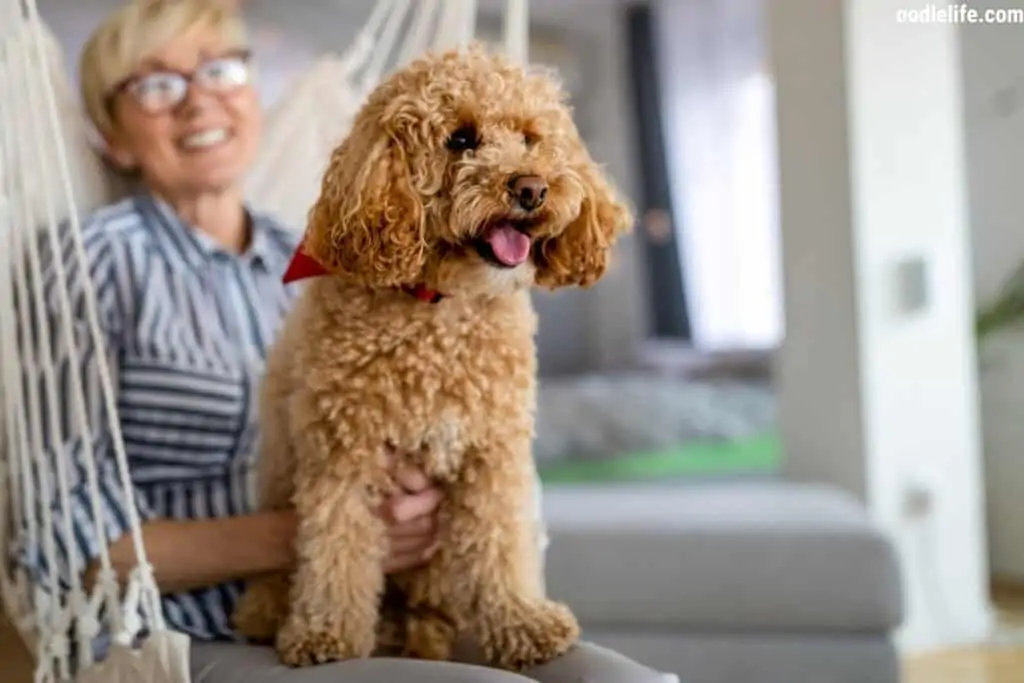
Poodles are great family dogs because they can form friendships with all sorts of people and don’t often “pick” a family member; in addition, they’re quite intelligent and receptive to training. Significantly, however, these dogs were bred to work and as such are born with boundless energy that must be focused.
The answer to “what age do poodles calm down” has a lot to do with the particular dog and the owners’ work with the dog, but a well-trained poodle can level out its temperament as soon as eighteen months, while others may not calm down till two, three, or even four or five years of age.
At the same time, a caveat must be placed. Ian Dunbar, the famed dog psychologist and veterinarian, tells us that training begins the day you bring your dog home and ends the day you bury your dog. Bad behaviors, even in mature dogs, can begin to emerge. Without proper and continual training efforts, hyperactive and listless behavior can emerge even in adult dogs.
What Age Do Poodles Calm Down?
I mentioned above that many Poodles tend to begin calming down around 12 to eighteen months. However, this is highly dependent upon the dog in question. Let me give you three case studies of poodles I’ve known.
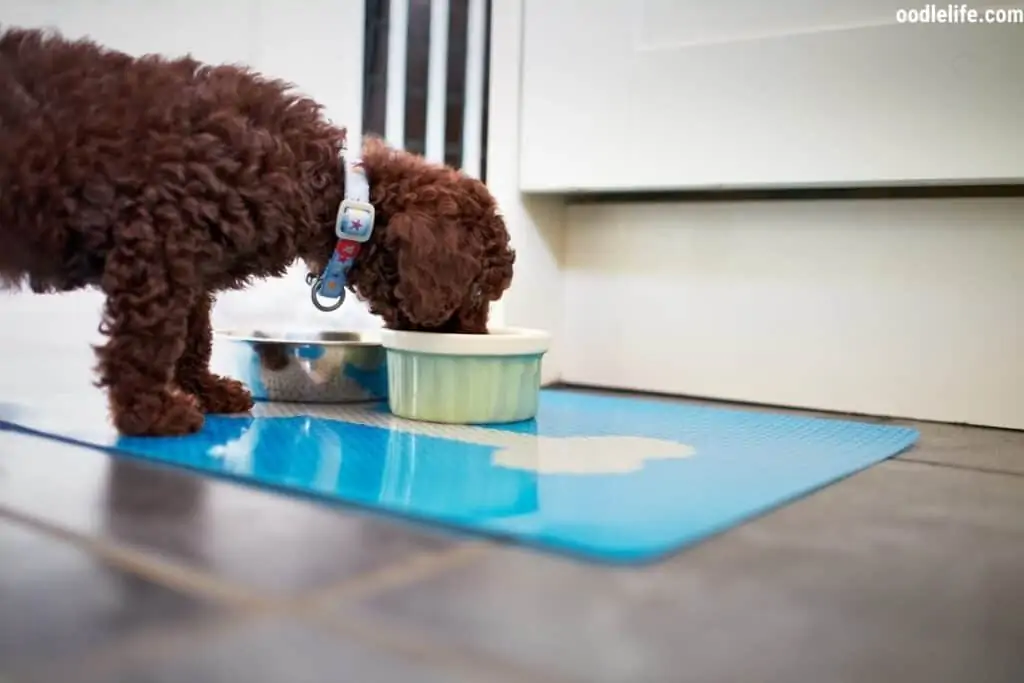
Case Study: Ozzie
Ozzie was a white male Poodle from California who weighed around 70 pounds when he was an adult. If ever a deer existed in dog form, this was Ozzie. Though he was very large and would occasionally get in scraps with other dogs in the dog park (dogs that were intimidated by him), he was the most docile dog I’ve ever seen.
Ozzie lived in a family with little children, and he was the perfect family dog. Like a patient mother, he would sit unmoving and unhostile as the kids hugged him, dressed him up in their clothes, and generally went crazy. Even from six months of age, Ozzie was completely calm and the owners didn’t need to do anything to encourage this behavior.
Case Study: Bella
After Ozzie passed, this same family got a dog named Bella who was a very different case. She was very hyperactive, tearing up all the old stuffed animals that Ozzie used to live peaceably with in his crate.
Because the family had owned Ozzie, they assumed Bella would be calm in later years like him. They were wrong. Bella displayed neurotic behaviors to the end, including randomly barking at and nipping people passing by her in the street. In one famous incident, when she was around seven she tore the back pants off an innocent man walking by in the street.
Case Study: Charlie
Charlie, the poodle I mentioned above, was much like Bella in that he was insanely hyperactive. The family, well aware of the hyperactivity, trained Charlie very well, making sure to associate positive feelings with silence and calmness (more on that below).
Nevertheless, by eighteen months of age, he remained very difficult to control, tearing through the house with seemingly unlimited energy, and asserting as much free will as an unbroken bronco.
Every Poodle Is Different
As the above case studies illustrate, every Poodle is different. Even with the best training, a Charlie may not settle down until three years of age. However, some really useful techniques can help calm your dog down faster.
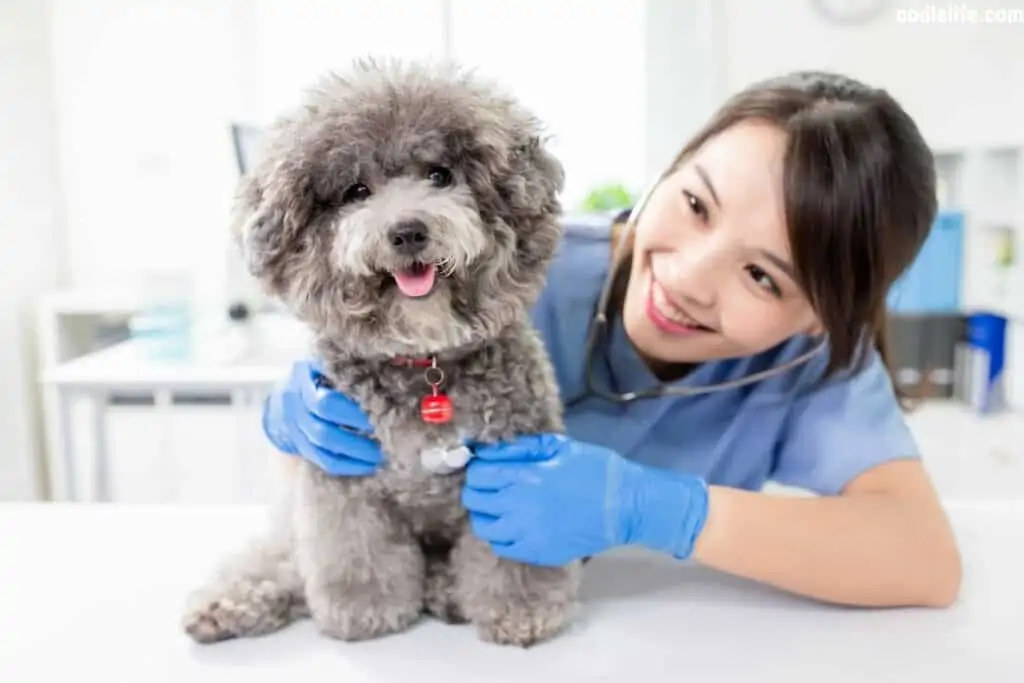
Why Is My Poodle Hyperactive?
First of all, it’s important to recognize that dogs, like people, undergo stages of development, each offering its own difficulties to the owner. These are the stages of Poodle development:
- Neophyte (zero to eight weeks)
- Puppy (eight weeks to sixish months)
- Adolescent (six months to around two years)
- Adult (two years to ten or so years)
- Senior (ten years to the end of life)
Far and away the most challenging stage of Poodle development is adolescence, though the puppy stage can offer serious difficulties as well, especially for new owners.
Hyperactivity is an extremely natural part of Poodles growing up. On the one hand, Poodles have a ton of energy that in most home environments isn’t spent adequately. Even when it is though, young Poodles are like little children: they love to run around and be crazy, caught up as they are in the bliss of existence.
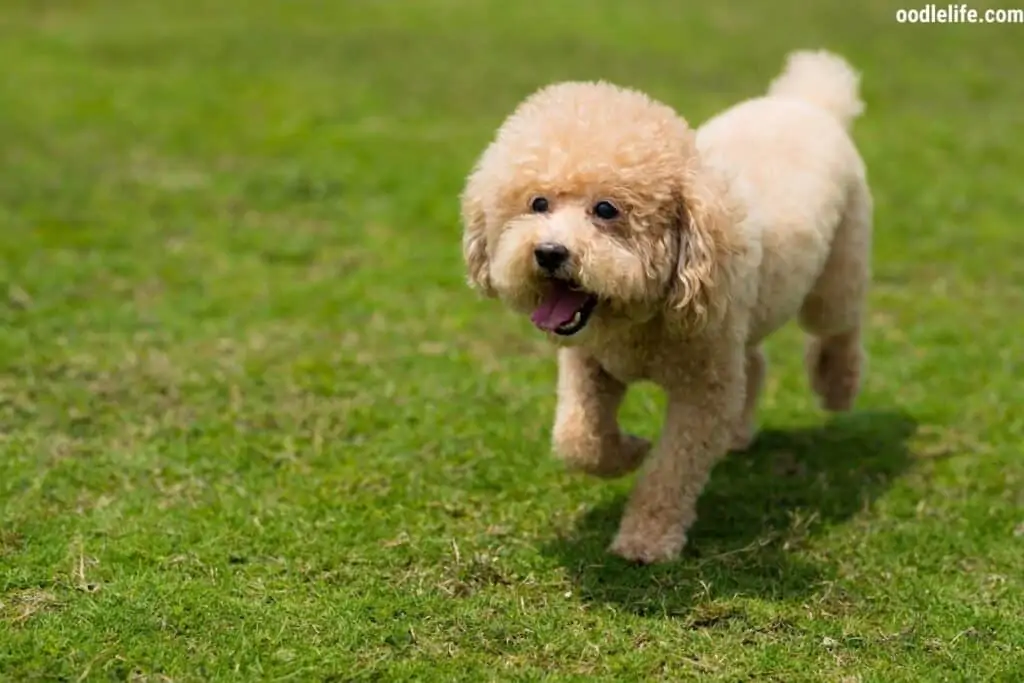
Tips For Dealing With A Hyper Poodle Puppy
If you have a hyper Poodle puppy, you’re not alone. These dogs can be super crazy, and new owners are often at a loss.
Remember that while dogs do need physical exercise, they also need mental exercise. Many owners say things like, “I take my Poodle walking for hours every day, but she still has so much energy!” Very likely, you’re not giving her enough mental stimulus.
Do at least five daily trainings, with different members of the family and in different parts of the house. Training is a really good way to exercise your Poodle’s brain. They ultimately like to please, and the idea of getting a treat when they’ve done their work correctly is an extremely enticing promise for Poodle puppies. Training with different members of the family and in different parts of the house helps keep the Poodle pups’ brains active.
Feed via kongs. If you’re feeding your Poodle via a food bowl, cut it out! I mean it. Puppies especially should be fed via kongs. Kongs require mental effort on the part of the puppy to get the food while meanwhile reinforcing in the Poodle’s mind the very kind of activity that is acceptable: that of laying down politely and calmly.
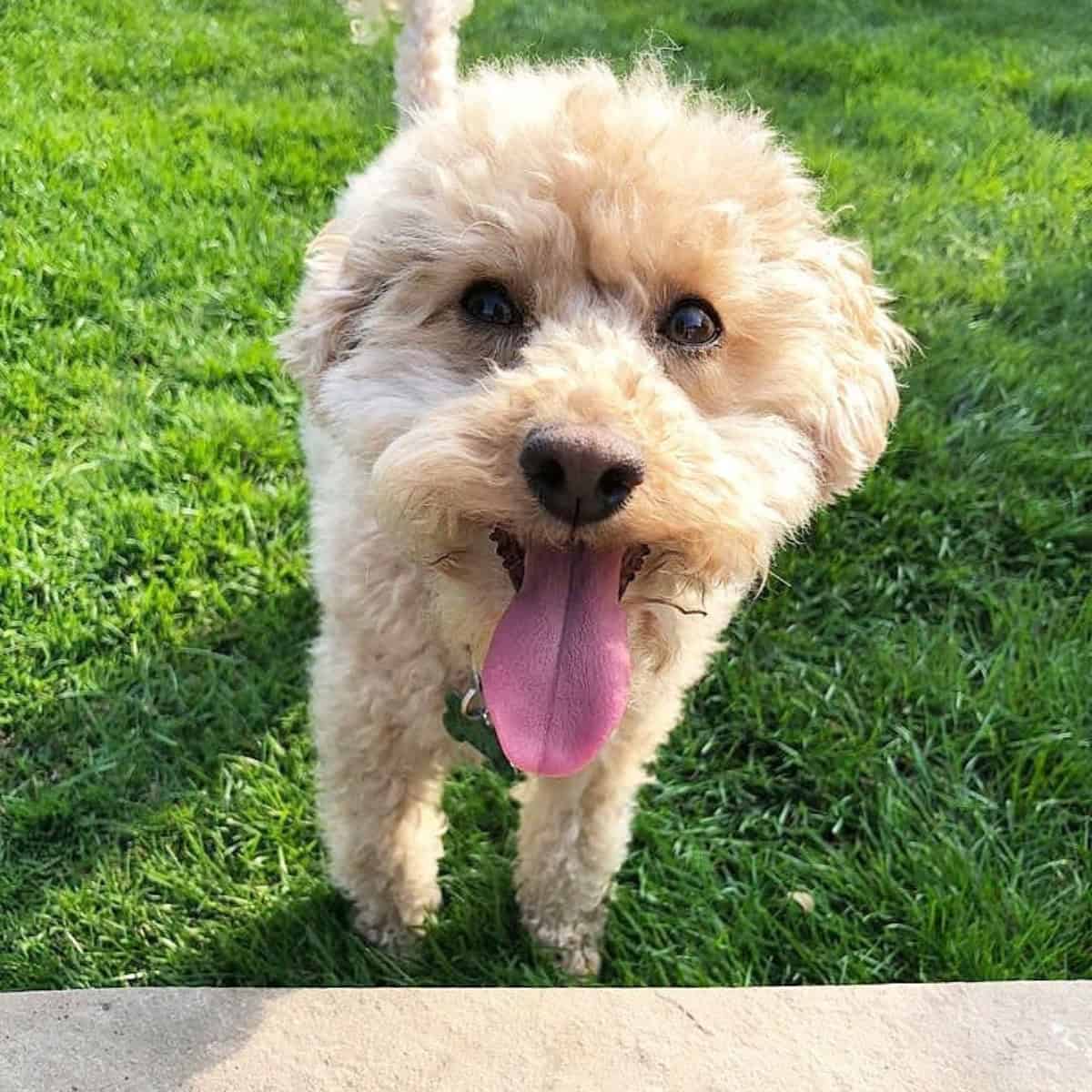
When An Older Poodle Acts Crazy Or Hyper
Remember that you need to always stay on top of Poodle training. Keeping your dog’s behavior in check even as it gets older is important. One thing I do is, for example, during walks, I still reserve the right to begin a training session out of the blue. This enforces to my dog that I’m in charge and that calm, polite behavior will continually be rewarded.

When An Older Poodle Mounts
They say you can’t teach old dogs new tricks, but this isn’t true. It just takes a lot longer. For mounting, you need to train your Poodle with the “off” command. Have something fun, like a squeaky toy or food with you at all times. If your Poodle mounts, gently give the off command and coax the dog away from mounting.
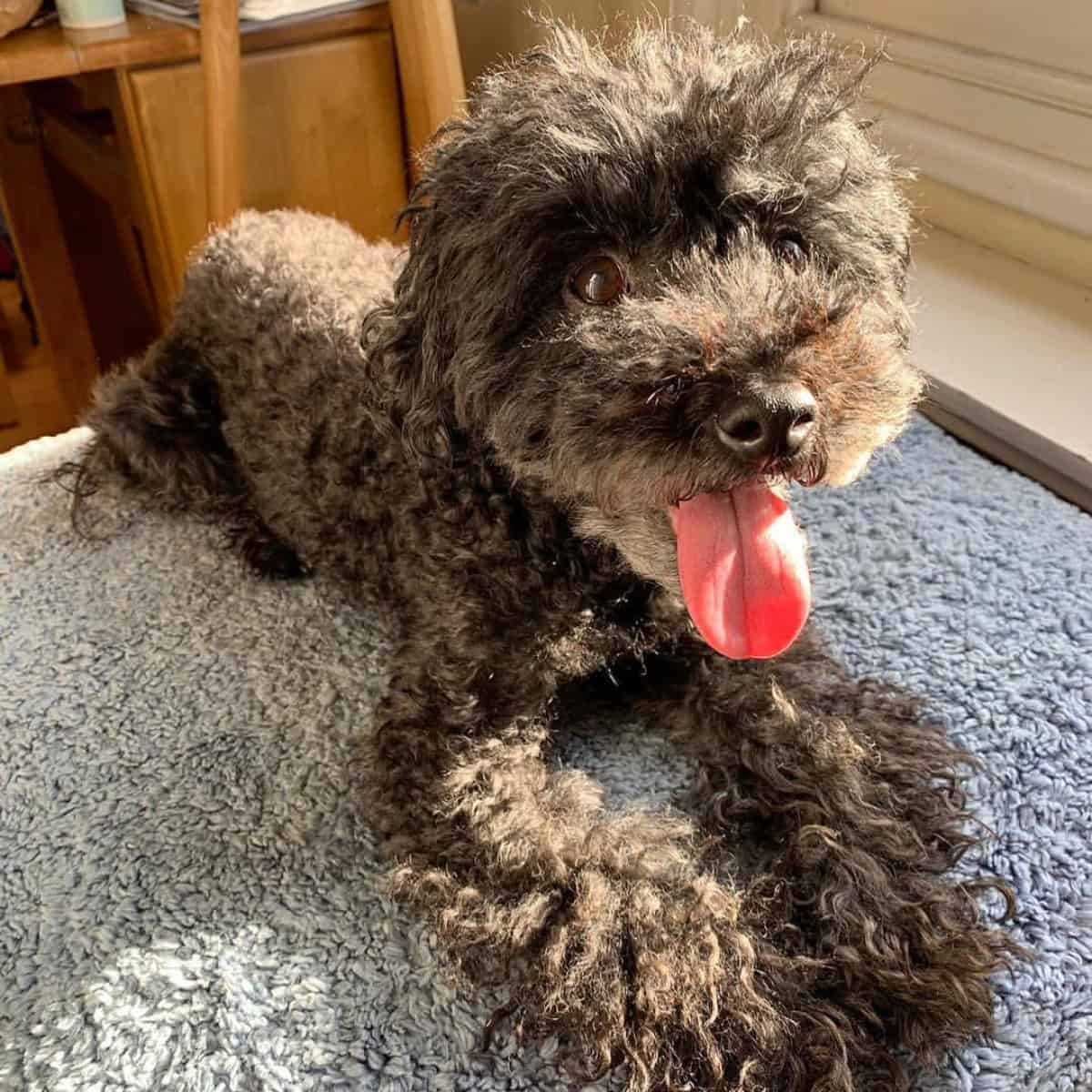
At What Age Is A Poodle Entirely Calm Conclusion
As I’ve said in this article, each Poodle is different. However, around five years of age, you can expect a much calmer Poodle than your six-month-old. Remember, however, that the training never stops. You must continually encourage your Poodle to “be calm and carry on” with positive stimulus and words of praise. Best of luck!